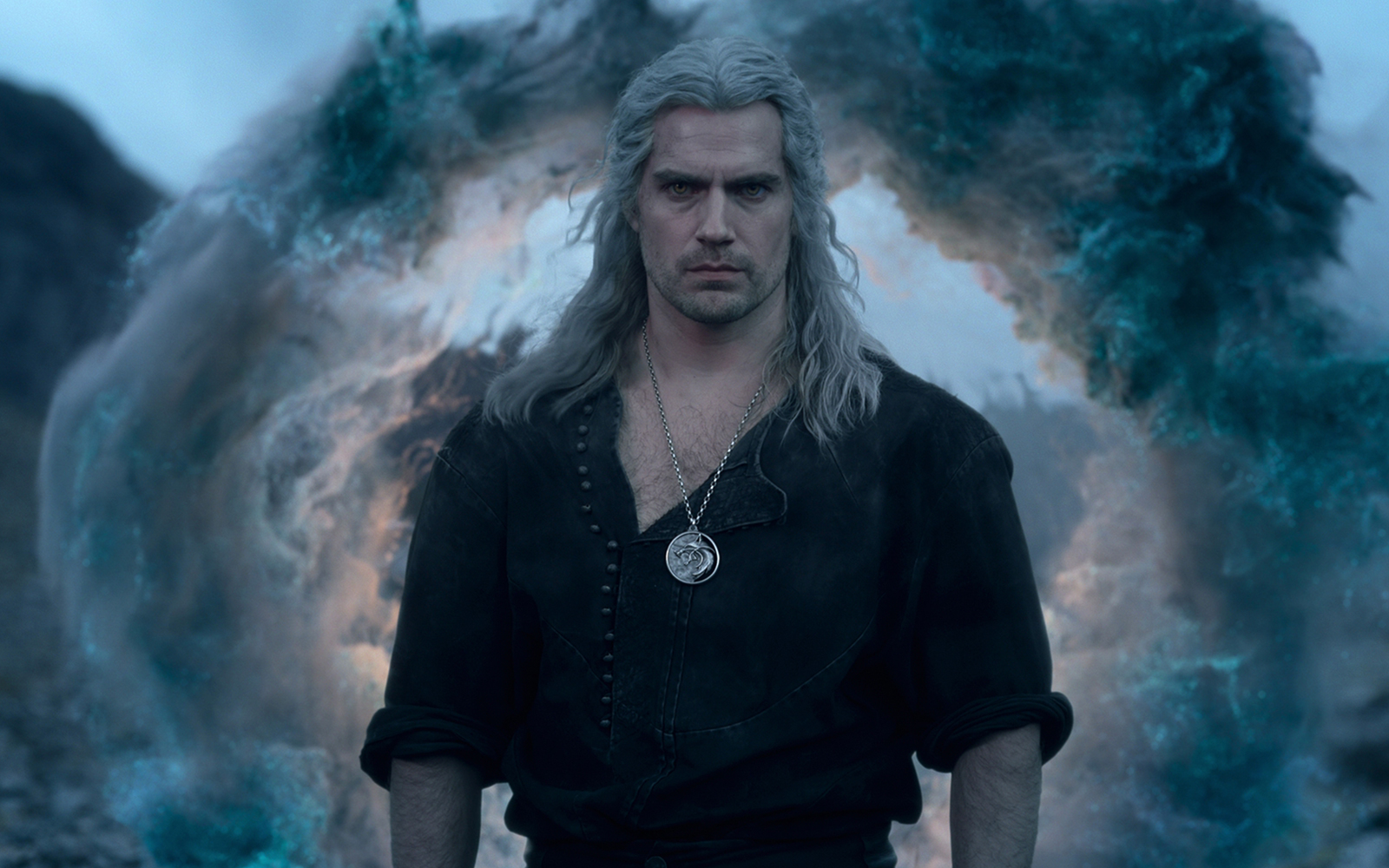
It’s the last season for the beloved protagonist of this fantasy drama – yet this enjoyable and thrilling adventure possesses enough strength to endure even in his absence.
When a show receives its own rendition of the iconic Netflix pa-poww logo animation that precedes every program, you know it holds significance. The Witcher, a fantasy epic set in a fictitious medieval realm known as the Continent, proudly displays the distinctive N of Netflix against a unique backdrop of twisted branches and eerie wails.
However, as season three debuts, it does so amidst uncertainty, and it’s not an exhilarating, electric uncertainty caused by wizards battling atop a mountain. This marks the final performance of Henry Cavill as the enigmatic wanderer Geralt of Rivia.
Beginning with season four, the torch will be passed to Liam Hemsworth, the lesser-known brother of Chris Hemsworth, known for his roles in The Hunger Games movies and, prior to that, Neighbours. This week, a producer of The Witcher fearlessly compared this casting change to the iconic recasting of James Bond or the Doctor, stating, “We have faith that… the essence of the intellectual property itself is what captivates many fans.”
However, the decision to replace the current Geralt of Rivia with an ersatz version from Erinsborough is undoubtedly a risky move. Henry Cavill portrays a distinctive kind of anti-heroic heartthrob: terse and resolute, possessing a dryness that borders on intentional humorlessness, yet confident that others will yearn for his gruff endorsement. His rugged appearance adds a certain grittiness, and many avid viewers of The Witcher relish that rawness. He embodies the essence upon which the show confidently sails.
/cdn.vox-cdn.com/uploads/chorus_image/image/72395580/EE_305_Unit_00553_RT2.0.jpg)
As we delve into the first part of season three, comprising five new episodes, we reunite with our beloved Geralt amidst a chaotic situation. The crown princess, Ciri (portrayed by Freya Allan), is under Geralt’s protection as they strive to unlock her latent magical and psychic abilities. Assisting in her training is the capable trickster, Yennefer of Vengerberg (played by Anya Chalotra), with whom Geralt shares a passionate connection that is currently on hold due to her betrayal in the previous season, when she conspired with a demon from another realm. Like quarreling parents embarking on a do-or-die journey with their rebellious teenager, the trio takes refuge in a series of coastal huts and rustic cabins, where Ciri’s training is persistently interrupted by the relentless pursuit of bandits seeking her capture.
This dynamic arises because the overarching narrative of The Witcher revolves around Ciri, not Geralt. Virtually every character in the increasingly intricate web of The Witcher desires to be in Ciri’s presence, as they believe it is their destined path. Some believe she holds the power to save their people – for instance, the elves see her as the sole catalyst for restoring peace to their society. Others are ruthless warlords harboring a hidden connection to her, secretly being her father. This year’s focus on harnessing her growing telekinetic and clairvoyant abilities resembles last year’s emphasis on her combat training. In a series that often feels like it’s building towards a significant event that never fully materializes, Ciri remains a character brimming with untapped potential and yet to see substantial action, even after two and a half seasons.
The lack of female agency is not a concern for the show as a whole. Yennefer undergoes a transformation into a shrewd politician, and her former companions at Aretuza, the academy for young sorceresses, play a significant role in the main storyline of season three. This storyline involves various factions tentatively joining forces or scheming against each other, preparing for either a devastating war or a lasting peace. The narrative jumps between multiple locations, often leaving Geralt unseen for extended periods, as if the show is preparing for Cavill’s departure.

At times, the political machinations result in an excess of scenes where characters explain or complain about past events without advancing the plot. However, the ensemble cast manages to captivate us with sheer enjoyment. The kingdom of Redania stands out as a source of amusement, with the foolishness of its king, Vizimir (played by Ed Birch), offset by his playboy younger brother, Radovid (portrayed by Hugh Skinner), who is not quite the dissolute fool he initially appears to be. Radovid’s unexpected romantic subplot adds a delightful twist. Redania’s intelligence operations are overseen by Dijkstra (played by Graham McTavish) and Philippa (portrayed by Cassie Clare), whose snappy banter in the office has evolved into a rewarding sub-dom kink dynamic.
The Witcher fearlessly introduces elements that are weird, transgressive, or disturbing, such as an extraordinary scene where Geralt – damn him, the excitement still surges when he returns – confronts a colossal crab-like creature created from the combined torsos and limbs of decapitated women. Among the other unforgettable monsters in this season, we encounter a malevolent armadillo that rolls through a labyrinth and a Demogorgon-like reptile that manages to endear itself to us by attacking a group of excessively melodious close-harmony singers performing show tunes from an alternate 13th-century universe.


